The Oji Group produces newsprint, printing paper, paperboard, and other products at mills across Japan, and for more than 60% of the raw material we use recovered paper. We promote the circular use of resources and contribute to maintaining a healthy paper recycling system by actively utilizing various types of recovered paper.
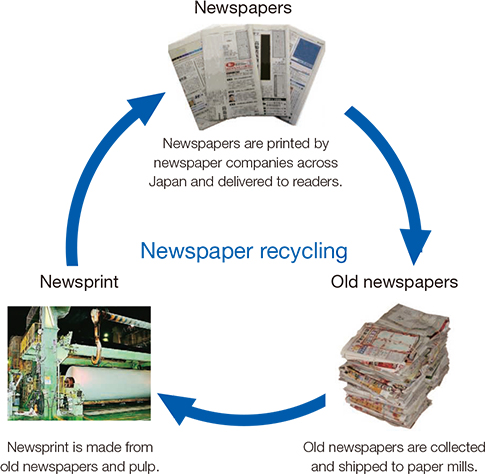

The Oji Group’s consumption of recovered paper is the largest in Japan, amounting to 3.58 million tons annually. This accounts for 24% of the 14.85 million tons of total recovered paper consumed in Japan. The Group uses various types of recovered paper in a wide range of products. The recovered paper utilization ratio has continued to increase year by year, achieving a record high of 68.3% in FY2023. The ratio for containerboard, in particular, is much higher, at 98.3%.
| FY2015 | FY2016 | FY2017 | FY2018 | FY2019 | FY2020 | FY2021 | FY2022 | FY2023 | ||
|---|---|---|---|---|---|---|---|---|---|---|
| Amount of recovered paper use (kt) | Old newspapers | 1,035 | 1,040 | 956 | 902 | 793 | 676 | 636 | 624 | 590 |
| Old magazines | 667 | 649 | 710 | 765 | 815 | 795 | 773 | 677 | 628 | |
| Old corrugated containers | 1,979 | 2,025 | 2,077 | 2,051 | 1,996 | 1,976 | 2,056 | 2,171 | 2,018 | |
| Others | 349 | 352 | 351 | 362 | 406 | 378 | 369 | 333 | 340 | |
| Total | 4,029 | 4,066 | 4,093 | 4,081 | 4,010 | 3,826 | 3,834 | 3,806 | 3,577 | |
| Recovered paper utilization ratio (%) | Oji Group companies in Japan | 64.3 | 63.5 | 64.0 | 64.0 | 65.6 | 68.5 | 67.1 | 67.6 | 68.3 |
| All Japan*2 | 64.3 | 64.4 | 64.2 | 64.3 | 64.6 | 67.5 | 65.9 | 66.3 | 67.1 | |
To date, the Oji Group has actively worked to expand the use of recovered paper with a focus on recycling confidential documents. We have also newly established a recycling system to recycle used paper cups and liquid containers such as milk cartons that have conventionally been difficult to recycle, and are promoting their reuse at our mills.
With the decline of sales of newspapers, magazines, and other forms of paper media, the generation of recovered paper has declined each year, even as the overseas demand for recovered paper remains strong. We therefore see it as our mission to improve paper utilization technology in a way that enables the stable consumption of recovered paper that was unable to be used previously, and that maintains a domestic circulation in which paper recovered in Japan is recycled in Japan. To fulfill this mission, we will work with recovered paper wholesalers and other recycling companies to promote the use of recovered paper as a domestic resource.
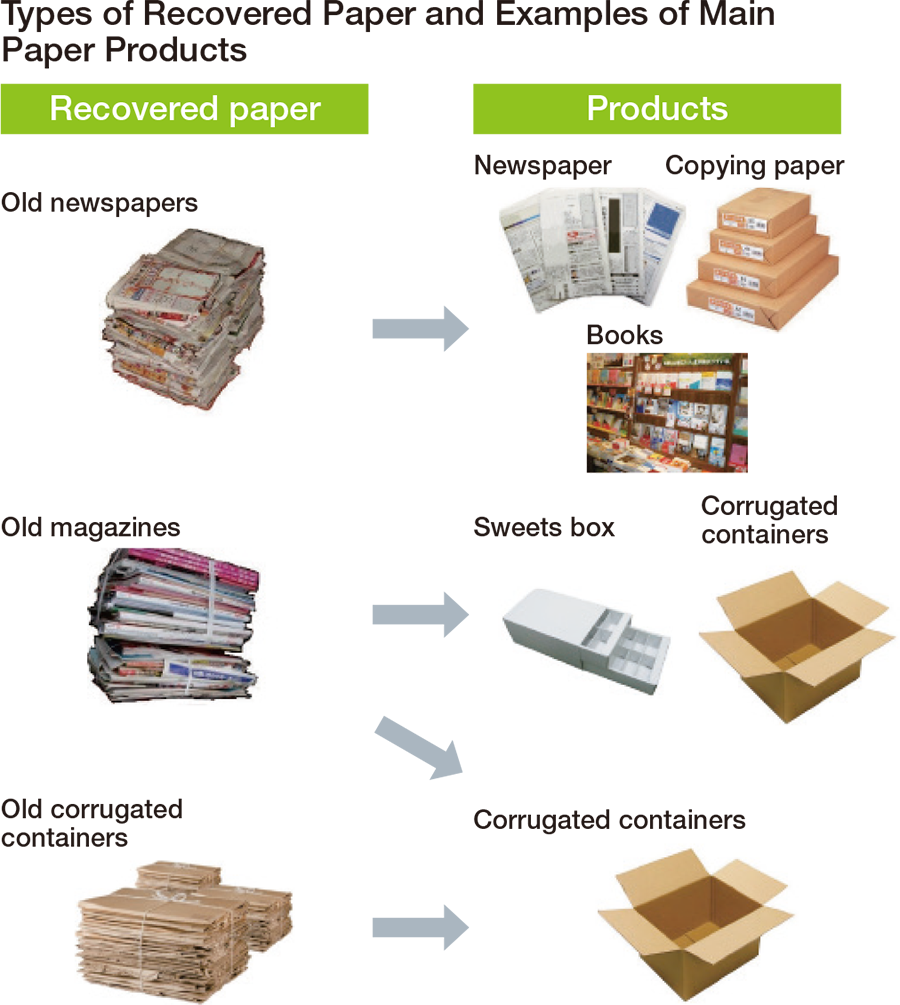

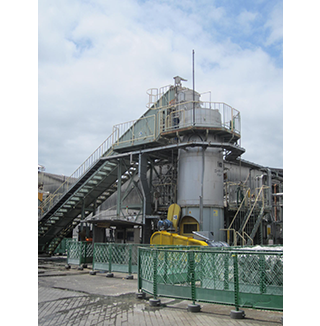


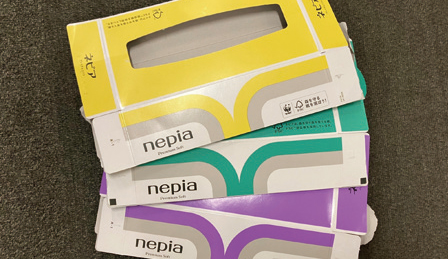
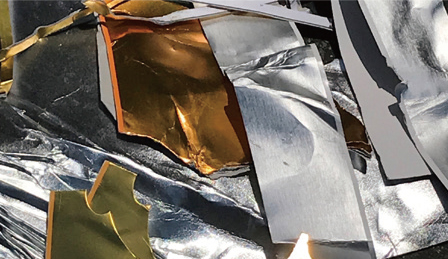

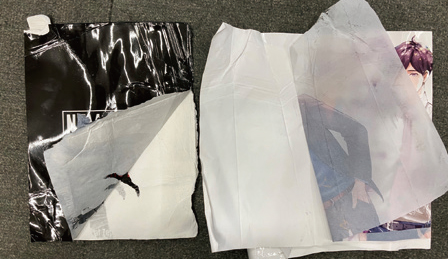
Foreign materials other than paper mixed in with recovered paper, or ink from specially printed or processed paper, can cause color spots and surface swelling of paper products, resulting in quality problems. These contaminants are collectively referred to as prohibited materials. The Oji Group cooperates with recovered paper recyclers and the Paper Recycling Promotion Center to engage in awareness campaigns targeting local authorities, schools and businesses to prevent prohibited materials from commingling.
| Paper products that cannot be used as raw materials of paper manufacturing | |
|---|---|
| Aromatic paper, perfumed paper | Wrapping paper and corrugated containers for detergents, soap and incense sticks, etc |
| Sublimation transfer printing paper, thermal expansion paper | Thermal paper, iron printing paper, 3D copying paper (such as the one for Braille) |
| Waxed corrugated containers | Corrugated containers that contained imported fruits and vegetables or processed marine products |
| Stained Paper | Food or oil stained paper |
| Materials other than paper |
|---|
| Stone, glass, metal, earth and sand, woodchips, fabric, plastics, etc. |


Oji’s containerboard mills in New Zealand and Malaysia also recycle recovered paper to contribute to a recycling society.
Oji Fibre Solutions (Oji FS) is the only containerboard manufacturer in New Zealand, and in 2023, its total consumption of recovered paper reached 177,000 tons—that nation's largest amount. In Malaysia, GSPP manufactures containerboard made almost entirely from recovered paper. In 2023, it used 695,000 tons of recovered paper, of which it procured 46% locally in Malaysia and imported 54% from overseas.
GSPP is working to improve the quality of recovered paper in Malaysia, mainly with the affiliated collection and sorting facilities.
Moreover, GSPP is conducting awareness campaign targeting general public to further promote recovered paper recycling.
Photograph on the right below shows the sorting bins donated to welfare facilities by GSPP in conjunction with the Embassy of Japan in Malaysia.
Bins are designed to raise awareness of recycling by enabling separate disposal of paper, plastics and cloth.

